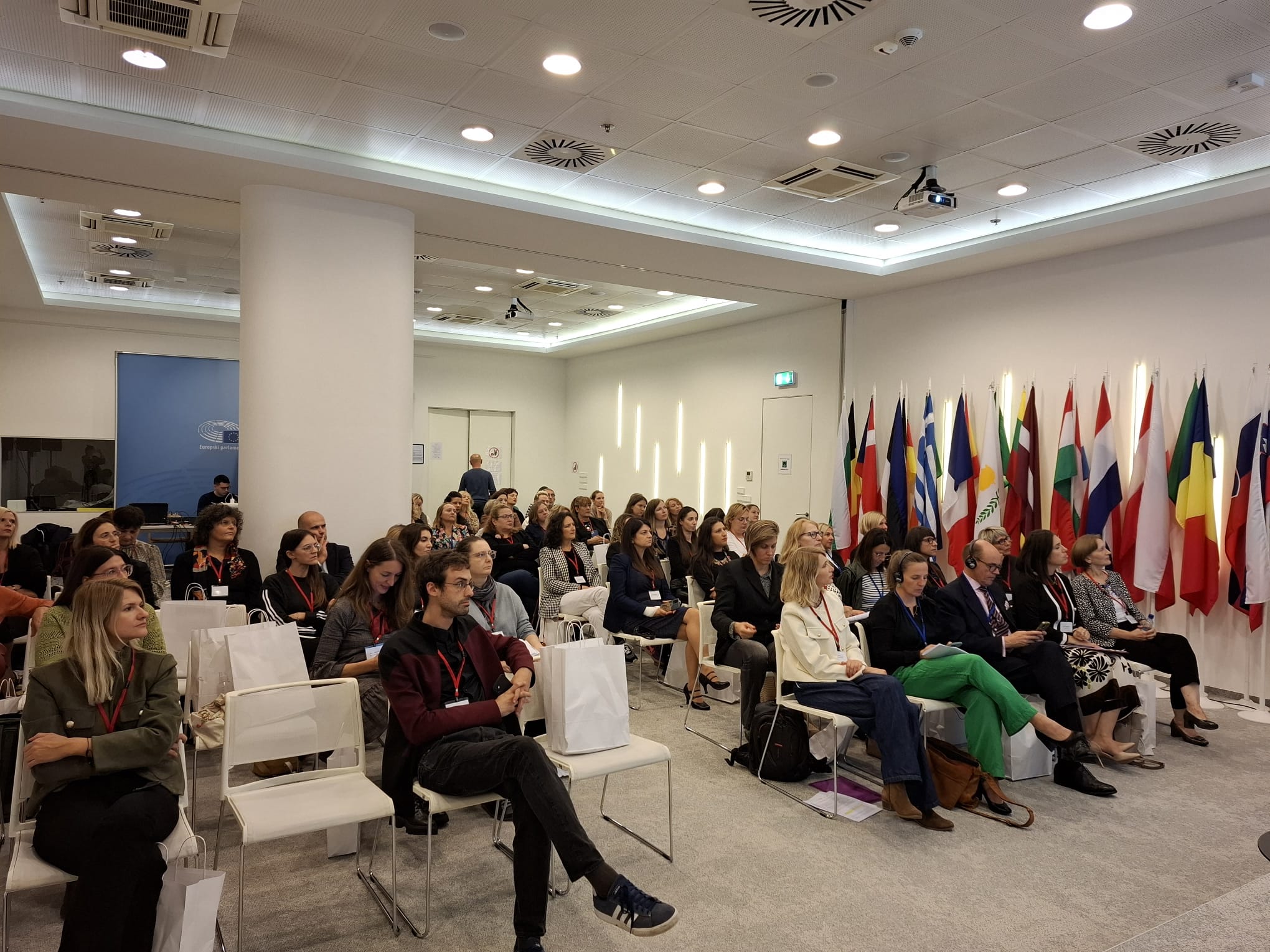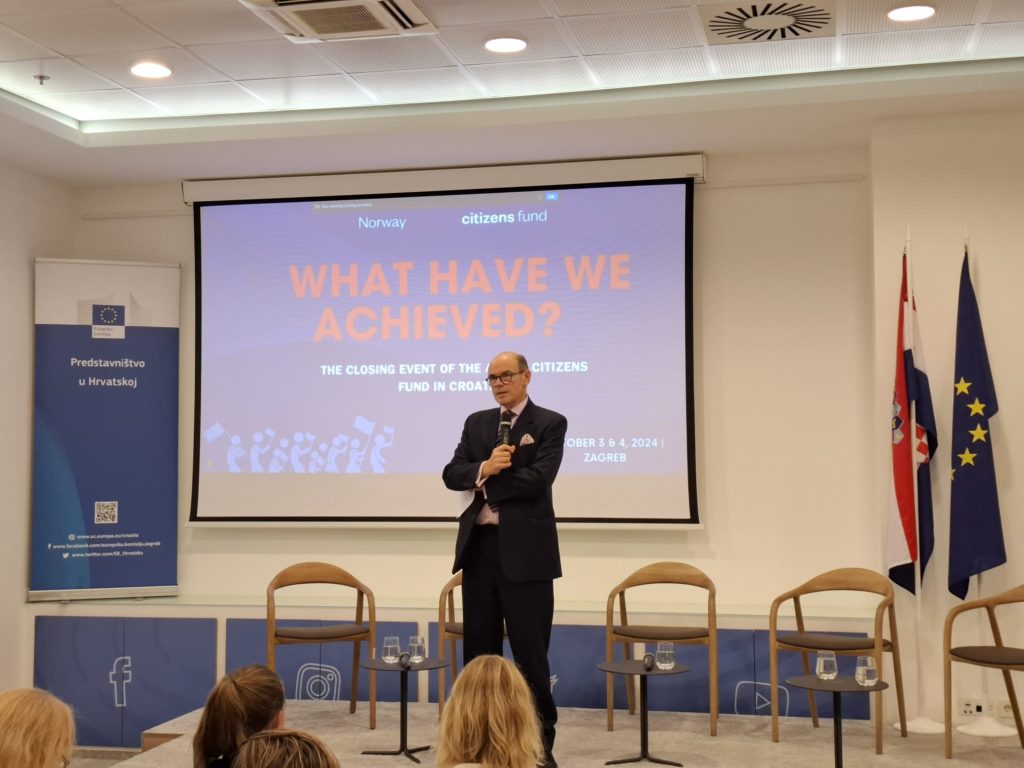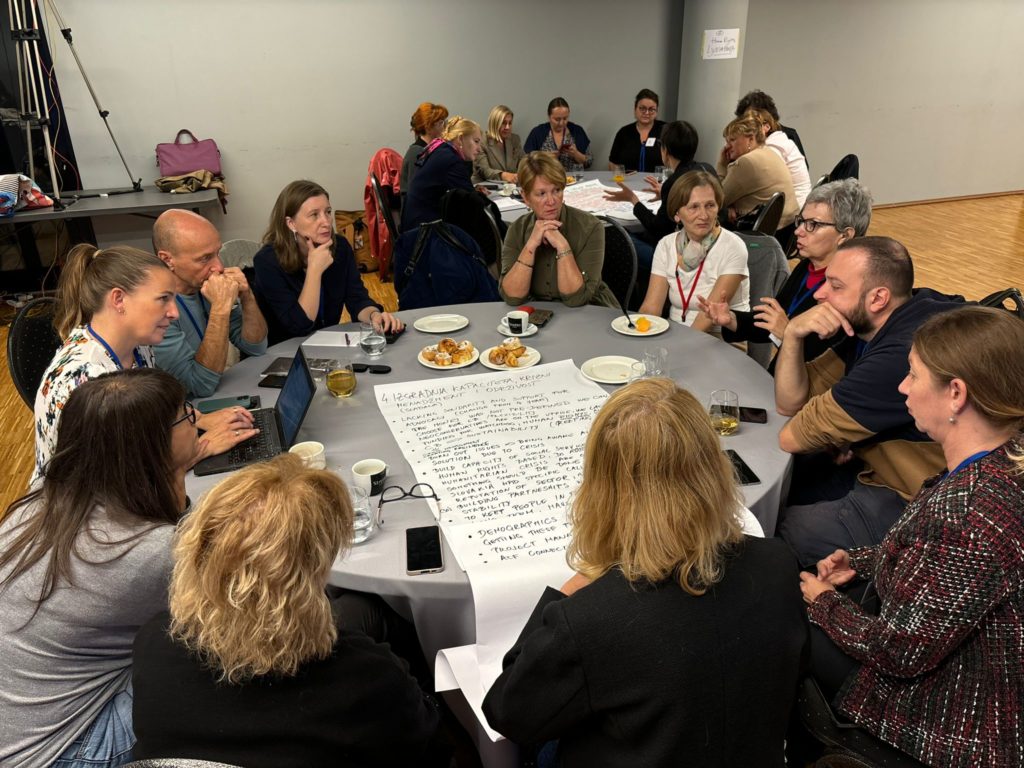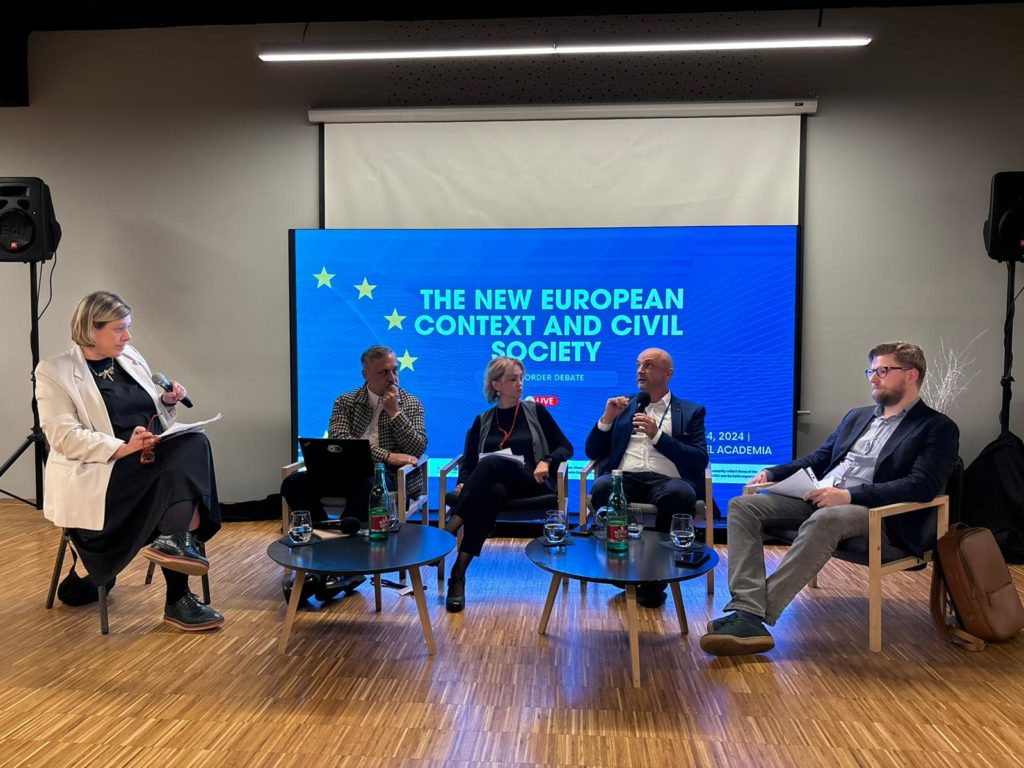ACF Croatia – final conference
Posted 07.10.2024.

Supporting Civil Society Means Supporting Democracy
The final conference of the Active Citizens Fund in the Republic of Croatia brought together experts and practitioners from Croatia and Norway, as well as fund operators from Slovenia, Slovakia, and Romania, for a two-day event in Zagreb. The conference provided an opportunity for an open bilateral exchange between Croatian and Norwegian experts on the contribution of the Active Citizens Fund to strengthening the stability of civil society organizations and on the engagement of Fund beneficiaries in preserving democracy in Croatia.
“Through our grants, Norway helps reduce social and economic disparities across Europe. This cannot be achieved without respecting and supporting human rights, equality, dignity, and the rule of law – fundamental values promoted by the ACF Fund. Supporting civil society means supporting democracy, which brings numerous social, economic, and political benefits to Europe, making it safer, more inclusive, more resilient, and economically stronger. That is why, in the next period, our support will be even greater,” stated H.E. Arne Sannes Bjørnstad, Ambassador of the Kingdom of Norway, during the opening of the conference.

On the first day of the conference, we started with a presentation of the results of the Active Citizens Fund (ACF), showcasing the work carried out through the Fund over the past five years.
Through ACF, a total of 157 projects were supported, with 98.52% of the funds contracted (€7.61 million out of €7.72 million). We launched seven open calls addressing various topics, target groups, profiles, and sizes of organizations. In total, 245 unique civil society organizations received support through approved projects, and more than 16,000 individuals participated in civil society activities.
Several civil society organizations from Croatia presented their best practice examples, including:
- Udruga SIDRO, which highlighted citizen mobilization initiatives;
- Udruga Vrapčići, which implemented a project focused on supporting LGBT individuals in Slavonski Brod;
- Dkolektiv, which presented DAtelje – a community engagement space fostering local initiatives.
“While the financial support we received through these programs and calls was extremely important, perhaps even more valuable was the diverse experiential and advisory support that we continuously received from the fund operators – Solidarna Foundation, Slagalica Foundation, and SMART Association. Without this support, would our success and growth have been the same? Would we have become a relevant stakeholder in early education policy in such a short time? Would our impact on decision-makers and education policies in Croatia have been as significant? It’s hard to say. However, we firmly believe that without ACF Croatia, things would not have progressed as quickly and successfully, and we are grateful to have been part of this program,” stated Jelena Draksler, Vice President of Udruga SIDRO.
“It is important to remember that the Active Citizens Fund program was one of the few funding sources available to organizations working in the field of human rights. It enabled the strengthening of the advocacy role of the civil sector, allowing us to reach numerous local organizations and, at least to some extent, mitigate regional inequalities,” said Branka Kaselj from Community Foundation Slagalica , speaking on behalf of the ACF consortium.
Strategic Discussions on Future Funding
The remainder of the first day and the second day of the conference focused on panel discussions addressing the strategic directions for the next funding period and the European Commission’s perspective on civil society development.
The bilateral panel discussion “Directions for the Future?” explored future perspectives based on the contributions of the Active Citizens Fund in strengthening the role and impact of civil society organizations in Croatia.
The panel featured:
- Igor Vidačak, Professor at the Faculty of Political Science, University of Zagreb;
- Kristin Dalen, Research Director at FAFO (Norway) and one of the authors of the study “Impact Evaluation of the EEA – Norway Grants 2004-2021”;
- Marte Oraug Skogtrø, Senior Political Advisor at Frivillighet Norge (Norway);
- Tina Divjak, former Head of the ACF Program in Slovenia.
The Bilateral Panel was co-financed by the Embassy of the Kingdom of Norway in Croatia, and was moderated by Marina Škrabalo from Solidarna Foundation.
Regional Civil Society Initiative: What Have We Achieved and How Can We Build a New Support Period? – Voices from Civil Society Practitioners from Croatia, Slovenia, Slovakia, and Romania
As part of the Regional Initiative of Active Citizens Fund Operators from Croatia, Slovenia, Slovakia, and Romania, a discussion was held on the key challenges facing our societies. The panel addressed the importance of strengthening the advocacy and watchdog role of civil society, as well as the role of civil society organizations in protecting human rights, with a special emphasis on women’s rights.
Using the World Café method, participants focused on achievements during the past funding period while also exploring opportunities for building a new phase of support.

The New European Context and Civil Society
he final panel addressed the critical issue of the strategic directions of the new structures within the European Commission and what can be expected in terms of initiatives, policies, and the legislative framework of the Commission.
The discussion also covered challenges the European Commission is currently facing or will encounter in the future, opportunities for collaboration with civil society, and the future of social cohesion policies, as well as approaches to economic and sustainable development within the European Union.
The panel featured:
- Gordan Bosanac, Member of the European Parliament from the Možemo! party,
- Mario Munta, Assistant Professor at the Faculty of Political Science in Zagreb,
- Ionut Sibian, Member of the European Economic and Social Committee,
- Lejla Šehić-Relić, President of CEV – Centre for European Volunteering and Executive Director of Dkolektiv.
The panel was moderated by journalist Ivana Dragičević.

It is important to note that our journey does not end with this conference. What concludes is merely one phase in the process of building a strong and resilient civil sector, fostering a society based on respect for human rights, social justice, and the inclusion of vulnerable groups, as well as our shared responsibility for the environment and climate change.
